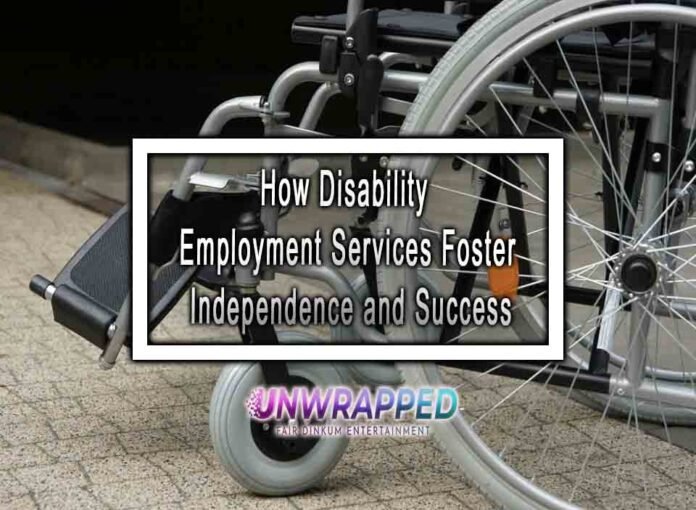One area where society believes that persons with disabilities have historically existed in the workplace. However, productive employment for people with disabilities is becoming increasingly accepted when reasonable accommodations are made; it benefits all parties involved.
It translates into more income, more financial independence, and better living standards for the disabled person. Employers benefit from increased variety in talent and skill sets, increased productivity, improved attendance, and higher employee retention rates. More people in the workforce translates into a lower need for government assistance, a higher GDP, and a culture of inclusion and tolerance.
In addition to giving people the money they need to support themselves, having good work and productive employment gives them a feeling of purpose and the chance to impact their personal and professional lives positively.
This is also true for impaired employees who claim a fulfilling career makes them happy. This blog examines the critical role that Disability employment services play in enabling people with disabilities to become independent, find meaningful jobs, and use their significant skills to benefit the workforce.
5 Ways to Promote Independence for Individuals with Disabilities
Here are 5 ways that employment promotes autonomy among people with disabilities:
1. Empowerment of the Economy:
One of the main advantages of employment for people with disabilities is the opportunity for economic empowerment. A consistent income source allows them to meet their basic necessities, pay for healthcare, and lead more fulfilling lives. Additionally, economic empowerment improves one’s capacity for decision-making and personal relationships, finally boosting self-independence.
2. Skill Development and Self-Confidence:
Getting employment enables people with disabilities to acquire various competencies that support them in completing everyday chores and may be used for other roles in the future. Their self-esteem and confidence can rise along with their newfound skills and knowledge. Through training and work experience, people can acquire important problem-solving, communication, and teamwork skills. This increased self-assurance transcends the job, allowing people to face daily obstacles more resiliently and assuredly, ultimately increasing their independence.
Employment provides a means for people with disabilities to reach personal goals and be acknowledged for their achievements. Completing tasks, completing projects, and reaching professional objectives fosters a sense of accomplishment and pride.
3. Social Integration and Support Networks:
Employment helps people with disabilities integrate into society and gives them a sense of community. The workplace can facilitate establishing connections and fostering relationships with coworkers and bosses. Deep conversations can dispel assumptions and preconceptions, encourage inclusivity, and boost societal acceptance. People can also find support networks at work, such as coworkers who can relate to their particular experiences and provide encouragement. These social ties give people direction, emotional support, and a feeling of belonging, which improves general well-being and gives people the confidence to achieve independence.
4. Increased Growth Prospects:
Through training programs, career growth opportunities, and on-the-job experiences, individuals with disabilities can gain new skills, broaden their knowledge, and keep current with industry trends through employment. It allows people to set and meet objectives, strengthening their feeling of direction and purpose in life. Working people are also exposed to novel situations, difficulties, and educational opportunities. People gain more autonomy due to developing their knowledge and skill set, making them more capable of speaking out for themselves and actively participating in decision-making processes.
5. Improved Quality of Life:
Moreover, meaningful work for individuals with disabilities gives them greater access to opportunities, resources, and services that let them live more independently. It fosters a feeling of fulfilment, purpose, and pride. A job offers discipline, a daily schedule, and a sense of community. Employment contributes to closing the achievement gap between ability and handicap, enabling people with disabilities to live fulfilling lives and realize their full potential.
Taking Down the Barriers: Typical Obstacles Faced
When looking for work, people with disabilities may encounter several challenges. DES programmes offer targeted answers to deal with these issues:
- Accessibility Concerns: DES personnel work in conjunction with employers to guarantee that the workplace is accessible and meets individual needs. This could include changing the restrooms, installing ramps, or installing specialised software.
- Communication Difficulties: DES programmes can offer training on assistive devices or communication techniques to improve a person’s capacity to communicate productively in the workplace.
- Transportation Problems: One major obstacle could be the absence of accessible transportation. DES programs may assist with trip planning and flexible work schedules, such as remote work alternatives.
- Lack of Confidence: DES programs frequently include mentorship, training, and support groups to help people gain the confidence they need to negotiate the job market successfully.
A Call for Action: Leveraging Disability Employment Services’ Power
In Conclusion, disability employment programmes are an effective means of helping people with impairments become successful, independent, and feel like they belong. If you’re looking for fulfilling work, consider visiting local DES programmes. By collaborating with DES providers, employers can gain access to a wider talent pool and create a more diverse workforce.











